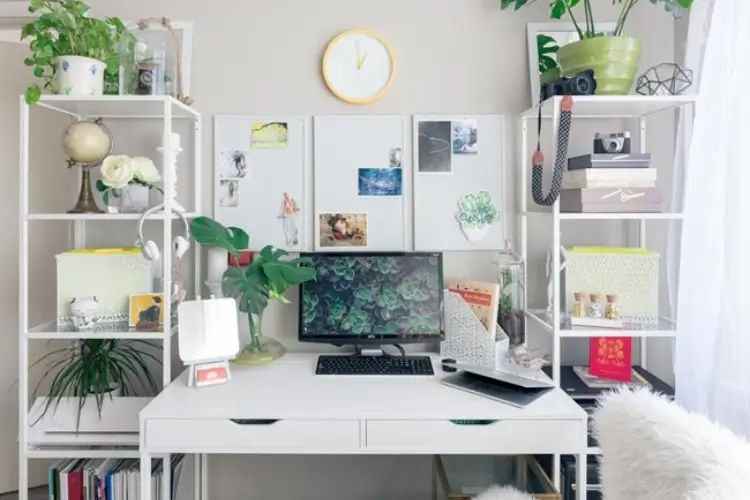With the advent of online education, creating an effective learning environment at home has never been more critical. A well-thought-out study space goes beyond a desk and a chair—it’s about fostering an area that enhances concentration, comfort, and productivity. In this article, we’ll explore essential tips to craft an ideal study environment to help you excel in your online learning endeavors.
Personalizing Your Study Area To Boost Motivation and Productivity
The look and feel of your study space can be a powerful motivator. Personalizing your area with items that inspire you, like motivational quotes, artwork, or even an indoor fake plant, can make the process of studying more enjoyable. Your workspace should reflect a balance between personality and functionality.
Color plays a vital role in setting the mood. Some colors, like soft blues or greens, are known to have a calming effect and help with concentration. Introducing these colors through wall paint, accessories, or stationary can subtly enhance your focus and mental clarity.
An organized space also contributes greatly to productivity. Keep only the essentials on your desk to minimize clutter—think laptops, textbooks, and stationery. Drawer organizers or desk tidies can be invaluable for keeping small items in order but out of sight.
Lighting the Way to Success: The Impact of Proper Illumination
Good lighting is one of the most essential elements of a productive study environment. A well-illuminated space reduces eye fatigue and keeps you alert. The best lighting comes from a blend of natural light supplemented with artificial light sources, preferably those with adjustable brightness levels.
Position your lighting to avoid glare on your computer screen and ensure there’s enough light for reading physical textbooks without straining your eyes. A desk lamp with a flexible neck can be particularly useful for directing light exactly where you need it when you delve into your study materials.
Whether you’re enrolled in an MLT to MLS program, completing your college degree, or acquiring new skills through e-learning platforms, the lighting of your study space can significantly impact your ability to focus and retain information. Consider the color temperature of your artificial lighting. Cool white bulbs are generally better for concentration and simulate daylight, enhancing cognizance and focus. In contrast, warmer bulbs can create a cozy ambiance, which may be more relaxing but potentially sleep-inducing.
Minimizing Distractions in Your Study Zone
Distraction is the nemesis of effective studying. Begin by identifying what frequently interrupts your study sessions, such as phone notifications, household noise, or even personal clutter. Once you know what your distractions are, you can take the necessary steps to mitigate them.
Consider investing in noise-canceling headphones to create an auditory barrier from environmental noises. If possible, establish a ‘do not disturb’ rule during set study times within the household. This can help others to recognize and respect your need for concentration and uninterrupted time.
Keeping the study area tidy and organized is crucial for maintaining focus. Clutter can be a significant distraction and hinders productivity. Allocate storage solutions, like shelves or drawers, specifically for study materials, and make a habit of straightening up your space before each study session.
Social media and web browsing are formidable distractions for many students. Utilizing technology selectively and responsibly, perhaps through website blockers during study time, can help create a discipline that aligns with your academic goals. Sometimes, turning off notifications or working offline when possible can also serve as effective strategies against digital temptations.
Overall, the creation of an ideal study environment is a crucial step toward securing academic success in online learning. By optimizing lighting, minimizing distractions, and personalizing your space, you create a solid foundation for focus and efficiency. These well-curated spaces are not just about aesthetic appeal but about crafting an atmosphere that propels you toward your educational goals.





